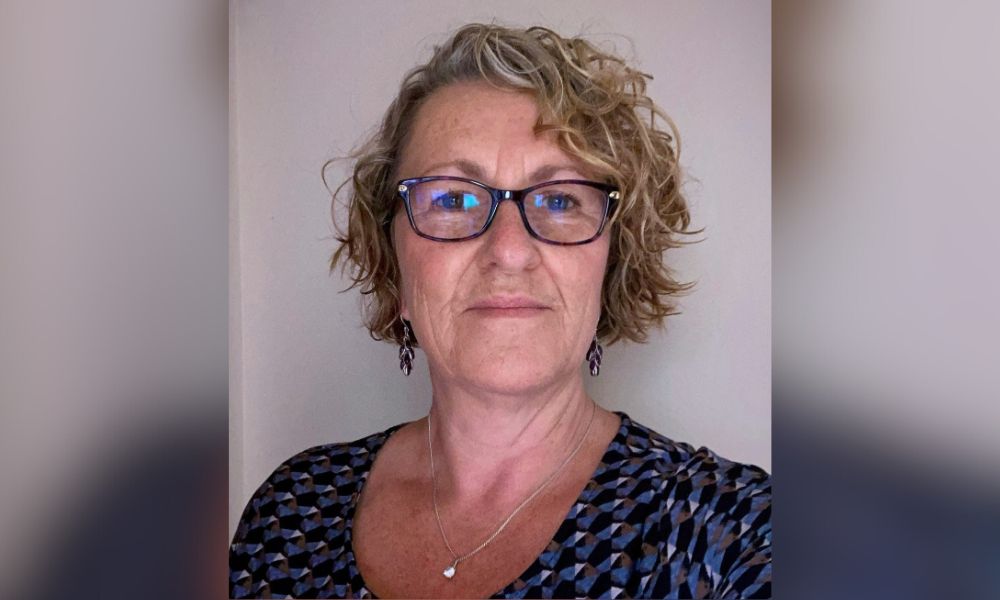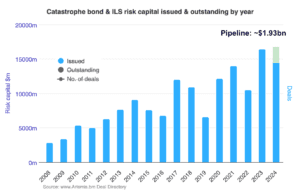Hospitality insurance in New Zealand – what’s happening?

Hospitality insurance in New Zealand – what’s happening? | Insurance Business New Zealand
Hospitality
Hospitality insurance in New Zealand – what’s happening?
Broker talks about what’s changed in the market and how clients are doing post-COVID and amid inflation
Hospitality
By
Terry Gangcuangco
Things are “not at all” back to normal in the hospitality sector in New Zealand, according to Marsh broker Justine White (pictured). What does this mean for hospitality insurance clients? White, who has specialised in this space since 2005 as part of her 32-year insurance career, breaks it down here.
“Very tough” times for hospitality
Following the coronavirus pandemic and amid inflation, the struggle continues for small- to medium-sized bars, cafés, and restaurants, White said.
She told Insurance Business: “I think what we have been seeing post-COVID is that clients have tightened their belts as much as they can. They’ve hung in there. They’ve survived the pandemic and the shutdowns, and now they’re going through a period where – because the economy is quite tight, inflation is really high – their costs and expenses have increased.
“Also we’ve noticed just recently that customer numbers are down. So, when you go to The Mount – that’s the most vibrant restaurant/café/bar scene in my own local area – most of the bigger establishments that are normally chock-full are 20% down; there’s spaces you can walk in and just take a seat. Whereas before you’d have to wait out the door.”
White pointed to “a lot of challenges at the moment” for such establishments, which she said are “really doing it tough” in the current environment.
“I have been with Marsh for 10 years now, coming up 11 years,” she noted. “We have quite a number of hospitality clients; talk to them a lot, engage with them a lot. Most of them have been clients for at least 10 years, so you get to have a really good relationship and have those good conversations with them when times are tough. Because they’re very tough right now.”
Implications for hospitality insurance
Given the existing difficulties, how are hospitality businesses – and their brokers and insurers – approaching insurance?
“There’s a lot of talk about clients wanting to reduce their sums insured to reduce premiums, or to go uninsured on certain risks to reduce premiums,” White revealed when she sat down with Insurance Business. “That’s dangerous territory. Murphy’s law comes into play.
“If they’re going to reduce their sum insured, they’re taking more exposure. So, what we try to do more is to talk about, ‘When is your busy time? When is best for your cash flow? Let’s move your insurance renewal to that period so you do have the cash funds to be able to pay those premiums rather than reducing it down.’ So, there’s lots of other ways you can talk about it.”
The broker added: “I think half of the thing is just them understanding that you care; you’re just not clipping a ticket and charging them a premium; you actually want to help them… I tend to say, ‘The first person you should call is me – we’ll do whatever we can to help.’ It might not be the end result that you’re actually looking for, but it gives more of an understanding of where you sit.”
As for the insurer side of the fence, White cited some of the recent changes in relation to hospitality insurance.
“What we’re seeing from a lot of underwriters when they are providing terms is depending on where the client is located,” she said. “If we’re in the Coromandel, Whangamatā, Whitianga, Gisborne areas, there’s some pretty high flood excesses. So, that’s one of the standard things. Most insurers now look at the council flood zones, which they never really did before.
“That’s challenging when the council had put pretty much the whole of Mount Maunganui into a flood zone. And they didn’t really have any losses during the last flood. Some of the huge insurers – they can’t do anything; they have a book that sets out, ‘This is what you have to do in these areas’, so you can tend to negotiate a little better when going to the smaller bespoke insurers.”
What’s important, according to White, is understanding what an insurer can have appetite for and can’t. For instance, some do not write risks for those that serve alcohol or where there are gaming machines.
Broker’s timing and client education
As an intermediary, White highlighted the crucial role played by brokers when it comes to arranging appropriate coverage for hospitality clients. Key elements include timing and educating insureds.
She told Insurance Business: “Coming into a renewal conversation with both a client and an insurer, timing is really essential. If you leave it to two days before a renewal, then that underwriter has got so much pressure at the moment that they may not even come back to you. So, talking to your clients six weeks before renewal date is just essential. Talking to an underwriter with a minimum of four weeks out from a renewal date is also essential.
“And also doing a little bit of extra homework: finding out where the nearest fire brigade is; finding out from the client what security and risk management processes they have in place – Do they have sprinklers, fire blankets, fire extinguishers? What would they do in an emergency situation? How would they approach that as a client? – and then really passing that information to the insurer, because if they have enough tools in front of them, they can adjust their underwriting rates accordingly.
“If you give them just the bare minimum – five lines, ‘This is what the client does’ – then, of course, you’re going to get a much higher rate out of the insurer, because they’ve got to look at the worst-case scenario. So, actually building a really good picture up for an underwriter of what a client does is just part of my day-to-day job.”
In terms of client education, White’s camp believes in the power of asking questions, more so amid a reduced insurer market and with premium increases of between 10% and 30%.
The broking stalwart shared: “We always say to them, ‘There are no silly questions – if you have one, just ask.’ Because it just means you don’t know what you don’t know. That’s why conversations are so important. You’re having a chat with a client and they’ll mention something just off the side, and you’ll go, ‘Oh, actually, we need to do something about that because there’s an insurance risk there that you’re not insured for.’
“You might be renovating your premises, so there’s more insurance now that you may need to consider. ‘What does your lease contract with your landlord say? Let’s have a little look at that and see if you’re buying the right insurance based on what you’re contractually supposed to buy. Is your landlord insuring what he’s supposed to be contractually insuring?’”
Policyholders, meanwhile, are “so much more open now” to not only talking about their problems but also listening to broking advice.
“Clients are open to talking to us and want to find solutions but also accept that there may not be solutions that they originally wanted,” White said. “We’re starting to see a couple of insurers with no increases in premium rates. If we can continue on that, that will help give tenants and businesses and property owners some assurance that things are getting better.
“Now we just need the economy to improve and people going out again, because they seem to be eating at home more and not spending their cash more. And that’s another hit for hospitality businesses – they’ve got to have the staff there and the food, but they’re not getting the customers coming in making the orders. So, let’s hope we get an amazing summer, because that’ll lead us in for the rest of the months.”
What do you think about this story? Share your thoughts in the comments below.
Related Stories
Keep up with the latest news and events
Join our mailing list, it’s free!






